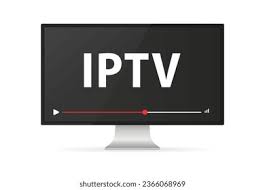
Introduction to IPTV
Internet Protocol Television (IPTV) has emerged as a revolutionary way of receiving television programming through the same networks that deliver the internet. As traditional cable television continues to wane in popularity, IPTV offers a modern solution that allows users to stream multimedia content on-demand. With 2023 already witnessing explosive growth in the IPTV market, the shift towards more accessible viewing options is undeniable.
The Rise of IPTV
According to a report by Grand View Research, the global IPTV market is expected to reach USD 108.64 billion by 2027, growing at a CAGR of 15.1% from 2020 to 2027. This growth can be attributed to the increasing demand for high-quality content, coupled with the smart device revolution, which has made it easier for consumers to access streaming services. Major platforms like Netflix, Hulu, and Disney+ have set high expectations, prompting traditional TV providers to rethink their strategies.
Benefits of IPTV
One of the most significant advantages of IPTV is its flexibility. Viewers can watch their favorite programs on various devices, including smartphones, tablets, and smart TVs, giving them complete control over their viewing experience. Moreover, IPTV often offers a broader range of channels and on-demand content than conventional cable packages. Users can customize their subscriptions based on personal preferences, avoiding the hassle of paying for channels they seldom use.
Challenges Facing IPTV
Despite its numerous advantages, IPTV is not without challenges. Internet stability and speed are critical for uninterrupted streaming. Users with slow or inconsistent internet connections may experience buffering, leading to frustration. Additionally, the market has seen a rise in illegal IPTV services, which pose a risk not only to content creators but also to users who inadvertently subscribe to these unauthorized providers.
Conclusion and Future Outlook
As we move further into 2023, IPTV looks set to redefine the landscape of video consumption worldwide. Telecommunications companies are increasingly investing in robust infrastructures to ensure that high-speed internet access becomes more available, thus enhancing the IPTV experience. For consumers, this means better quality viewing, more choices, and potentially lower costs. The significance of IPTV lies not only in its technological advancement but also in reshaping consumer habits towards media consumption. As demand continues to rise, content creators and providers must adapt to the expectations of modern audiences, paving the way for a more dynamic and engaging entertainment industry.



